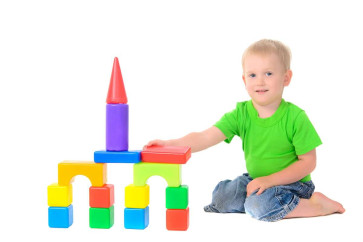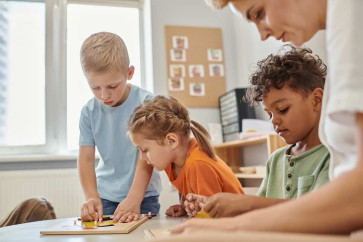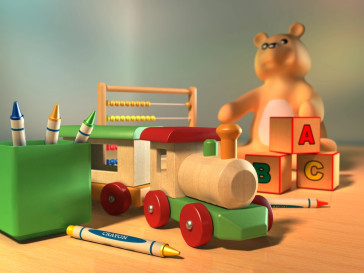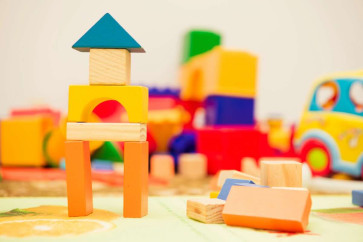The nature vs nurture debate revolves around two different points of view. The proponents of the nature side believe that a child’s personality depends mainly on genetics. In contrast, the advocates of the nurture side argue that a child’s personality develops over time and is affected by environmental factors. In this article, I’ll try to shed some light on how nature might affect children’s development.

Nature affects a child’s mental development. Factors like genetics and neonatal health play an important role in the development of a child’s brain. But environmental factors are responsible for sensory, physical, and cognitive development. The environment also plays a major role in determining a child’s pace of learning. For example, say you are busy with house chores or work, so you have very little time to interact with your child. Because of this, your child plays on his own and since he is mostly on his own and doesn’t have anyone to talk to, he may lack language skills or at least develop them slower than kids his own age who have people to talk to all day long.
We, as parents, play an important role in our children’s lives. For the first few years, a parent, especially a mother, is the child’s entire universe. In the initial years of life, children are mostly interacting with their parents. So it is natural for them to see their parents as role models. You are your child’s first teacher. Children learn from observation and they are observing their parents all the time. If you cuss at home, behave rudely, or get angry all the time, expect your little son or daughter to do exactly the same. Our kids scrutinize and analyze everything we do. Even if they are very little and we think they do not understand, they understand more than they let on!
The Montessori approach stresses the importance of the environment in enhancing a child’s learning. It promotes the idea that a child’s brain is like a blank canvas and the environment is the color palette that we can use to paint their minds trying to create a masterpiece.
Early years are crucial in your child’s development process. Here is why:
The first five foundation years:
We all know for a fact that sound foundations make for stronger buildings. The same is the case with your child’s development. A child with a firm foundation grows up to be a more successful individual. Childhood experiences have lifelong consequences. They shape your child’s personality.

We all have seen some adults who have trouble regulating their emotions. That is often because of childhood trauma or stress. Psychologists say that the first five years of life are crucial in a child’s upbringing. The child develops habits and routines during these years. These habits will stick with your child for all of his or her life.
Your child will learn everything during this time. They will learn to socialize and identify their emotions so they can act upon them. They will learn manners, the use of language, and whatnot. These skills are essential for your child to lead a successful life.
Diagnosing learning disabilities
Children often face different learning challenges. Each child is unique and has his or her own way of learning. Some kids learn at a slower pace than their peers. Others face difficulties in learning a language or issues expressing their feelings. Some have trouble learning mathematical concepts or processing auditory information. Some others struggle with non-verbal communication and social cues. Yet others may have poor hand-eye coordination, etc.
But it is important not to get discouraged when your child shows any of these symptoms. You’ve got to know and understand that learning disabilities are easier to overcome if you diagnose them early. The sooner you find out your child’s specific learning disability, the quicker you can help him outgrow it.
Time to develop confidence
The early years are the time when children learn confidence. Kids become confident when they are allowed their freedom. The Montessori approach suggests that children should be free to work and learn independently. Independence encourages them to experiment, which in turn, helps them to make better decisions. This builds confidence in children and enables them to express their ideas.

Time to socialize
A newborn child is clueless about the world. Their first interaction is with you, the parent, and you are their first educators. Their first lesson on how to handle relationships comes from no one else but you. So, your child must grow up in a household filled with positive energy.
During the early years of life, your child cannot talk. They have not yet developed language skills and can only communicate using their senses. Children can sense emotions very well. They can tell when you are stressed, happy or angry. So, unknowingly, you are teaching these emotions to your child. Hence, the household environment affects a child’s emotional health. That is also why children coming from dysfunctional families have trouble trusting relationships throughout their lives. They often develop trust issues. That is why it is imperative that you surround your children with people that can teach them the value of positive relationships.
Time to learn new languages
Children learn language skills during the early years of life. During this time, the human brain is most active in producing neurons. This means that your child can learn quicker than adults. Psychologists say that the maximum amount of learning happens during the first five years of life. That is why it is easy for children to learn multiple languages early on. You might question your sanity when talking to a baby, but the baby will love you more for it.
Of course, it seems funny to talk to a baby who possibly does not understand what you are saying. But verbal communication from an early age is important for your child. It helps your child pick up vocabulary words. It also encourages them to speak. The tone and dynamics of your voice are also major factors. Remember, children pick up on emotions. The happier your tone, the happier the baby. The softer your voice, the more relaxed your baby.
You cannot reverse the clock. But you can ensure that your child grows up in a healthy environment. The first five years of life are your chance to help your child to embark on his or her path of success.








